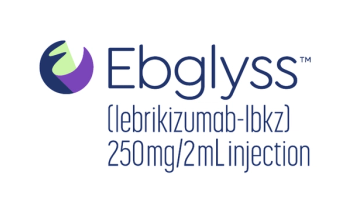
FDA approves first immunostimulatory antibody for multiple myeloma
An oncology expert at ASH will present extended follow-up and overall survival data from ELOQUENT-2, the study on which Empliciti is approved.
FDA approved elotuzumab (Empliciti, Bristol-Myers Squibb and AbbVie) for the treatment of multiple myeloma as combination therapy with lenalidomide (
Related:
Empliciti activates the body’s immune system to attack and kill multiple myeloma cells.
Multiple myeloma is a form of blood cancer that occurs in infection-fighting plasma cells (a type of white blood cell) found in the bone marrow. These cancerous cells multiply, produce an abnormal protein and push out other healthy blood cells from the bone marrow. This disease may result in a weakened immune system, and cause other bone and kidney problems, according to an FDA press release.
The approval of this first and only immunostimulatory antibody for multiple myeloma is based on data from the randomized, open-label, phase 3, ELOQUENT-2 study of 646 participants, which demonstrated that the ERd regimen resulted in a 30% reduction in the risk of disease progression or death compared to Rd alone (HR 0.70 [95% CI: 0.57, 0.85; P=0.0004]). Those taking Empliciti plus Revlimid and dexamethasone experienced a delay in the amount of time before their disease worsened (19.4 months) compared to participants taking only Revlimid and dexamethasone (14.9 months). Additionally, 78.5% of those taking Empliciti with Revlimid and dexamethasone saw a complete or partial shrinkage of their tumors compared to 65.5% in those only taking Revlimid and dexamethasone.
Giordano
“Empliciti represents a fundamentally different treatment approach for patients that delivered improved outcomes that were maintained over time,” says Michael Giordano, senior vice president, head of development, oncology, Bristol-Myers Squibb. “An important aspect of the maintained benefit, is the
Diarrhea, fever (pyrexia), constipation, cough, nerve damage resulting in weakness or numbness in the hands and feet, infection of the nose and throat, upper respiratory tract infection, decreased appetite and pneumonia are the most common side effects of Empliciti.
FDA granted
The drug is available for injection for intravenous use in 300-mg and 400-mg vials.
“We are continuing to learn about the ways the immune system interacts with different types of cancer, including multiple myeloma," said Richard Pazdur, MD, director of the Office of Hematology and Oncology Products in FDA’s Center for Drug Evaluation and Research. “Today’s approval is the second monoclonal antibody approved to treat patients with multiple myeloma and works with another approved therapy to provide additional benefit."
Daratumumab (Darzalex, Janssen Biotech) was
Read next:
Newsletter
Get the latest industry news, event updates, and more from Managed healthcare Executive.























